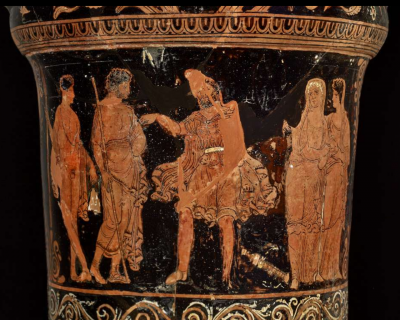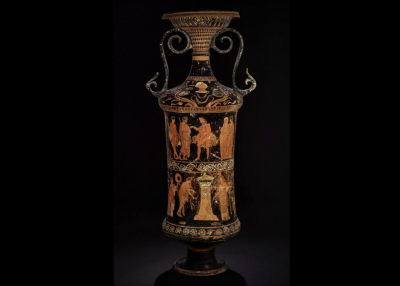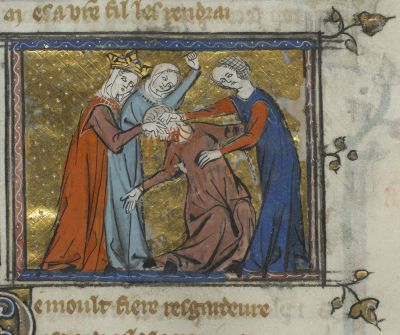
Polymestor was a king of Thrace at the time of the Trojan War. He supported the Trojans and was on friendly terms with Priam and Hecuba. There are many different versions of his story, the most widespread being that used by Eurypides, who says that shortly before the Fall of Troy Priam entrusted his youngest son, Polydorus, to Polymestor to ensure his safety, along with a great quantity of gold to be kept for him until he grew up. But when the city fell, Polymestor killed the boy to secure the treasure for himself and threw the body into the sea. The corpse washed ashore in front of the Greek camp, where the captive Trojan women were being held. Among them was Hecuba, the boy’s mother, who vowed to take vengeance. She therefore invited Polymestor and his children to her tent, where with the help of some of the other captives she blinded him and slew the children. In order to win favour with Agamemnon, Polymestor said he had killed Polydorus so that there would be no surviving son of Priam who might one day rebuild Troy (Eurypides, Hecuba 1132-1182). In the version of his story recorded by Dictys of Crete, Polymestor gave Polydorus to Ajax son of Telamon in order to save his country. Hyginus, on the other hand, says that when the Greeks asked Polymestor to kill Polydorus, he ended up killing his own son Deipylus, for in this version Priam entrusted Polydorus to the boy’s sister, Ilione, who was married to Polymestor and who switched him with her own son Deipylus, whom she brought up as Polydorus; that was how Polymestor came to kill his own son instead of Polydorus.















